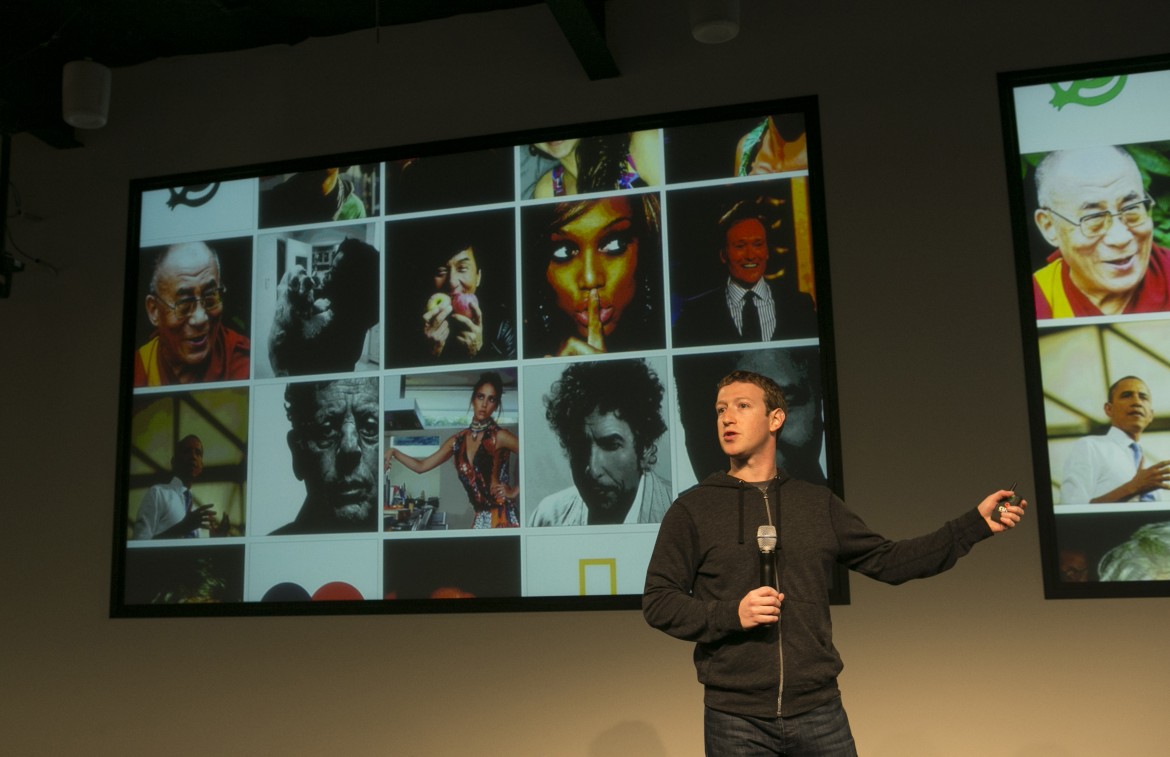Analysis
Zuckerberg: We will police our own system
Mark Zuckerberg responded to the criticisms of his platform by promising to increase the amount of moderation (aka surveillance), while refusing to acknowledge any problems with the business model of Facebook itself.

Facebook is an “idealistic and optimistic company,” but it has made big mistakes in the data breach of 87 million Americans created by Cambridge Analytica. On Tuesday, its founder and CEO Mark Zuckerberg took responsibility and, ahead of his first day of testimony before US Congress (he testifies again Wednesday), wrote on his personal Facebook page, “I will do everything I can to make Facebook a place where everyone can stay closer with the people they care about, and to make sure it’s a positive force in the world.”
Amid the tangle of counterculture, yuppie aggressiveness, and holistic and managerial philosophies called “Californian ideology,” the praiseworthy intention to do good in the world can easily become the opposite: creating a platform for cynical (electoral) plots and passions that are hardly idealistic or positive, lurking on the dark side of the web.
Zuckerberg waded into this ambivalence Tuesday, recalling again Facebook’s role in amplifying movements such as #MeToo and #MarchForOurLives, to say nothing of its part (alongside Twitter) in Occupy Wall Street or the “Arab Springs.” Facebook helped raise $20 million after Hurricane Harvey, and 70 million small businesses use the platform to create jobs. Weighing the other side of the scale are the fake news that helped put Trump in the White House, the foreign interference and hate speech, and the sale of users’ personal information to companies and developers.
In creating its platform, Facebook has become a Trojan horse that can amplify the messages of those who have another idea about how to “do good in the world”: evoking the same principles of the omnipotence of the algorithms and the alleged “disintermediation” of platforms compared to the friction of the market, politics or society.
Most significant was Zuckerberg’s proposed solution for the “surveillance capitalism” in which we live. He said Facebook will commit itself to policing its own system. “It will take some time to work through all the changes we need to make across the company, but I’m committed to getting this right.” For example, by the end of the year Zuckerberg promised to hire 20,000 monitors to ensure data security and content review. To him, this is not a dystopia: more surveillance means more “order” according to the idea of ”transparency” and “democracy” typical of the platform. Facebook also has artificial intelligence tools that, in a period of five or 10 years, will be able to accurately identify hate speech. By then, the AI could identify the “linguistic nuances” in the content to be more precise in reporting messages that use hate speech. “But, today, we’re just not there on that,” Zuckerberg said.
Tightening the controls should, of course, help avoid another Cambridge Analytica case. Zuckerberg said the company had considered the data collection carried out in 2015 to be “a closed case.” But it was not because, according to at least the official version reiterated by Zuckerberg before the 44 senators of the joint Senate Justice and Commerce Committee, Cambridge Analytica did not destroy the data and instead used it to track 87 million profiles. Facebook would have treated the case differently under the policies it has in place today, but it’s too late for that. However, the platform did not inform the Federal Trade Commission about the collection of data even after it became aware of it.
New surveillance for the protection of users’ safety could also affect profitability, Zuckerberg hypothesized. But it would aim to limit the personal information that can be accessed whenever someone connects an external application. Developers will only be able to access the name, profile photo and email address, and must obtain further approval and meet the new requirements to avoid indiscriminate collection.
In this regard, Zuckerberg dismissed the idea that Facebook is a monopoly, rejecting the claims that the social network has exclusive control of the market. “The average American uses eight different apps to communicate with their friends and stay in touch with people,” he said. That distinction is evident, but it probably does not sufficiently weigh the fact that Facebook, with its over two billion users worldwide, is itself a market over which it has an absolute monopoly.
Under the reforms Zuckerberg is promising, advertisers who wish to publish political content will have to submit to a more rigid authorization system. It is unclear at the time what will happen to everyone else who uses Facebook to submit advertising offers based on the profiling of platform users.
Zuckerberg replied to Senator Bill Nelson, who led the hearing, that the advertising model is “most aligned with our mission” because it allows us to offer free service. Without advertising, no sharing. Without profit, no “friendship.” In other words, Zuckerberg defended the model of exploiting the digital workforce so that the platform, and its advertisers, can profit, without acknowledging the value of wealth users produce.
Meanwhile, a class action lawsuit was launched in the United States and the United Kingdom against Facebook and Cambridge Analytica for the violation of personal data. Zuckerberg is likely to pay fines and compensation in the millions.
Originally published at https://ilmanifesto.it/facebookgate-zuckerberg-ho-sbagliato-ora-saremo-i-poliziotti-del-sistema/ on 2018-04-11
